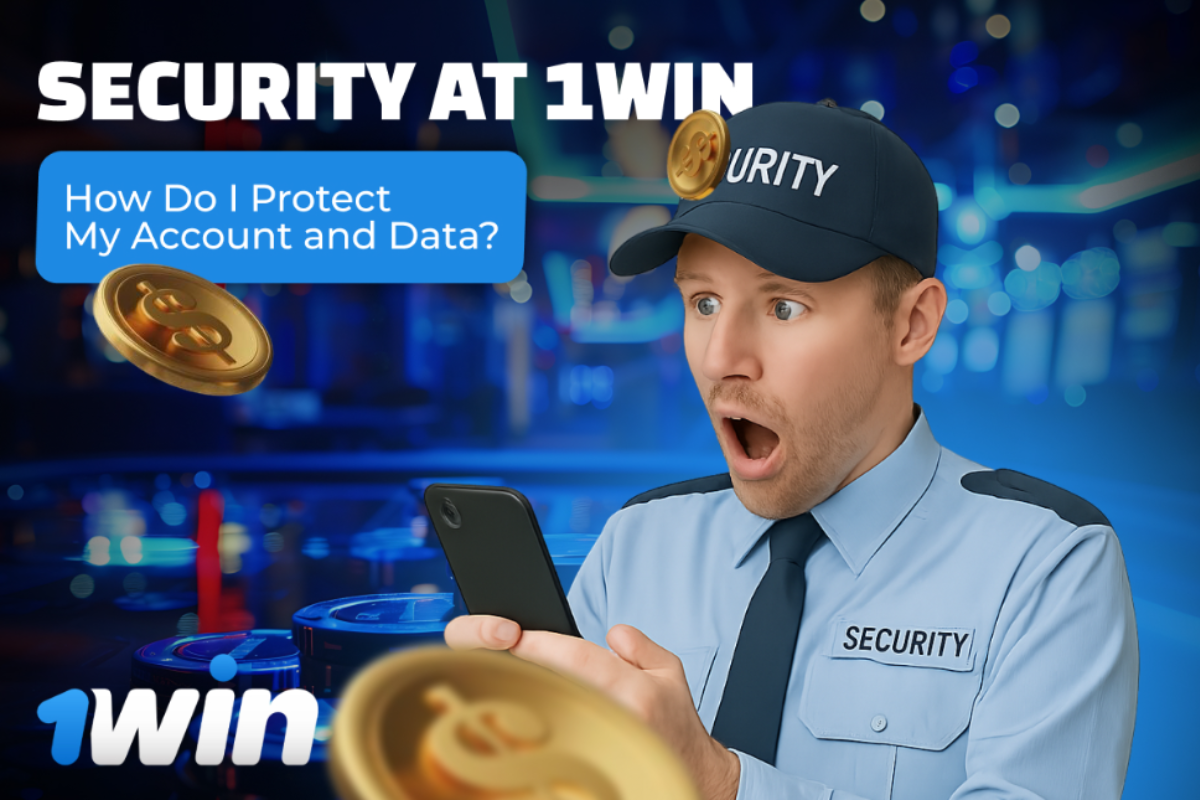
Did you know that two-factor authentication blocks over 90% of unauthorised access attempts to accounts, including 1win login, which is critical if cyber threats are on the rise. In Ghana, many 1win users are already aware of the importance of protecting data on unstable networks and the risks of phishing. This article therefore goes on to look at specific mechanisms and examples of how to protect your 1win account and personal information.
Main Threats and Examples of Attacks
To effectively protect your account, you need to understand the real risks players face. Common threats include phishing emails with false links to a 1win page, malicious apps, password compromise and man-in-the-middle attacks on public networks.
For example, a user from Ghana may receive an email purportedly from the 1win service requesting to confirm login via a fake website: by entering the password, attackers gain access to the account.
Malicious applications masquerading as official 1win applications pose a particular threat in Ghana. Such fakes can ask for a login and password and then pass the data to attackers. Users also encounter fake messages in WhatsApp and Telegram promising “login bonuses” via a link – in reality, this is phishing. Another common case is the installation of third-party software to “automate betting” with access to device files: after launching the programme, it reads saved passwords and cookies, including data from 1win. At the same time, cybercriminals can discreetly change account settings, including email and methods of regaining access. All of these schemes exploit user trust and ignorance of basic security principles in the digital environment.
Encryption and Security of Data Transmission
Responsible sites use encryption to protect data in transit and storage. 1win uses SSL/TLS for all communications to ensure that login, password and transaction information is encrypted and inaccessible to interceptors. Similarly, payment data is encrypted using modern protocols, reducing the risk of financial information leakage.
Two-Factor Authentication and Password Management
Strengthening your defences starts with strong passwords and 2FA. 1win app Ghana provides the option to enable two-factor authentication after login in the profile settings. The user must:
- Create a unique complex password at least 12 characters long with letters of different cases, numbers and symbols, avoiding obvious phrases.
- Enable 2FA and store backup codes in a safe place (not on the same device).
- When changing devices or SIM cards, deactivate old 2FAs or update the binding in advance so that access is not lost. For example, a Ghanaian player after registering on 1win activates the 2FA via the app, sees the one-time code every time he logs in and thus protects his account even in the event of a password leak.
Secure Access: Devices and Networks

Your choice of device and network affects the security of your login.
You should avoid accessing 1win from other people’s or public computers, especially in internet cafes or public Wi-Fi. If access is required outside the home, use a personal smartphone with an updated OS and antivirus, and when connecting to public networks, a reputable VPN is recommended. For example, a user in Accra checks the stability of the connection: before logging into a 1win account, make sure that the network is password-protected, or switch on the VPN so that traffic is additionally encrypted.
Monitoring Activity and Reacting to Suspicions
Regular activity checks help to detect unauthorised access in time.
After logging in to 1win GH, you can view your login history in the account settings: time, IP or approximate location. If suspicious (e.g. logging in from another region), you should immediately change the password and disable 2FA with re-configuration. If the device unexpectedly asks for login confirmation and the user has not started the session, this is a signal to change the password immediately and notify 1win Support.
Protecting Financial Transactions
Transaction security is a separate priority for the user and the site.
1win uses encryption of payment data and partners with trusted payment providers that support localised methods in Ghana (e.g. mobile money or bank transfers in GHS).
It is recommended to: check the website address before entering data, avoid autofilling details on dodgy devices and set deposit limits. When withdrawing funds for the first time, 1win may request identity verification: provide copies of documents via a secure channel to prevent fraudulent attempts to withdraw other people’s funds.
Local Specificities for Ghana
Due to possible internet connection interruptions, Ghanaian players are advised to check network stability before 1win login to avoid session interruptions during important operations. When using mobile internet, traffic should be monitored: only update the 1win app via verified channels (official website or verified app shops).
In addition, it is worth considering the risks of phishing via local messengers: attackers may spread links to fake 1win sites. Always check the domain before entering data.
Updates to the Application and Interaction with Support
Update the 1win app regularly: new versions contain vulnerability fixes and security improvements. If in doubt (e.g. notification of suspicious activity or non-standard app behaviour), please contact 1win support via the official channels (email [email protected] or in-app chat).
When reporting an issue, be specific about the circumstances: time, device type, example URL where data was requested so that the team can quickly check the logs and secure the account.











